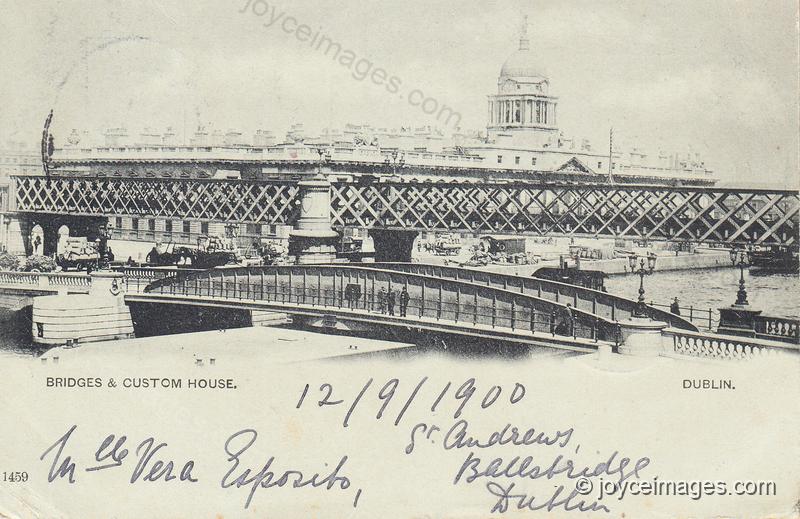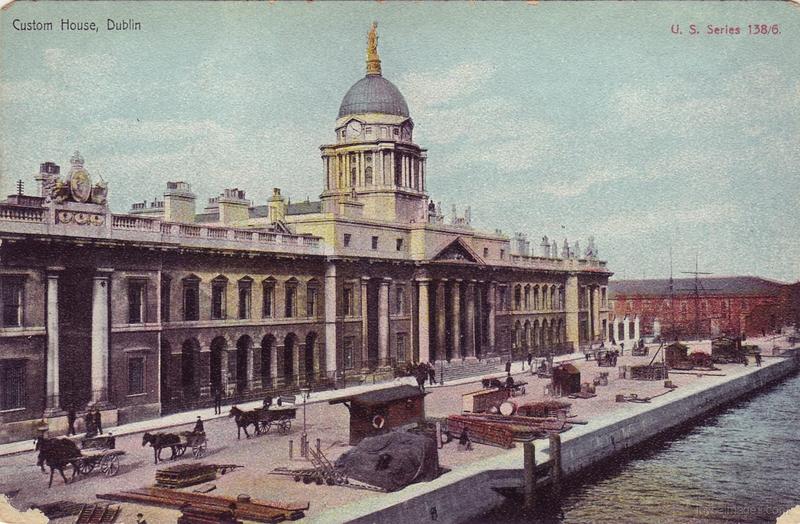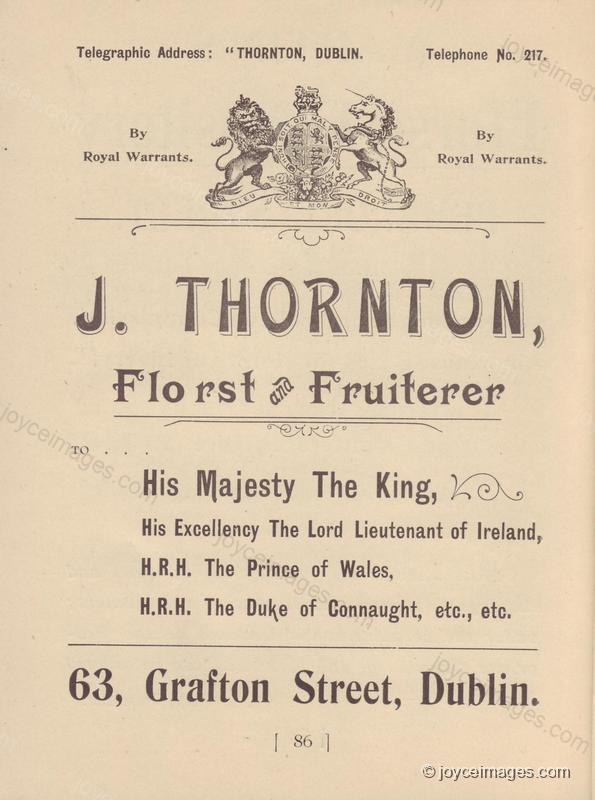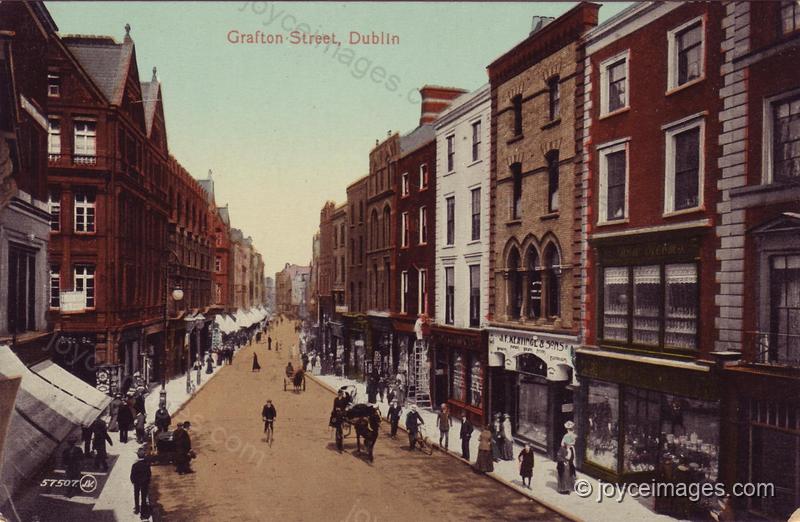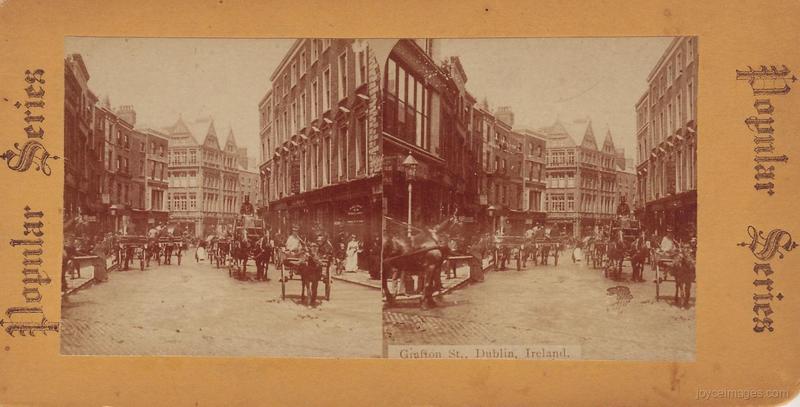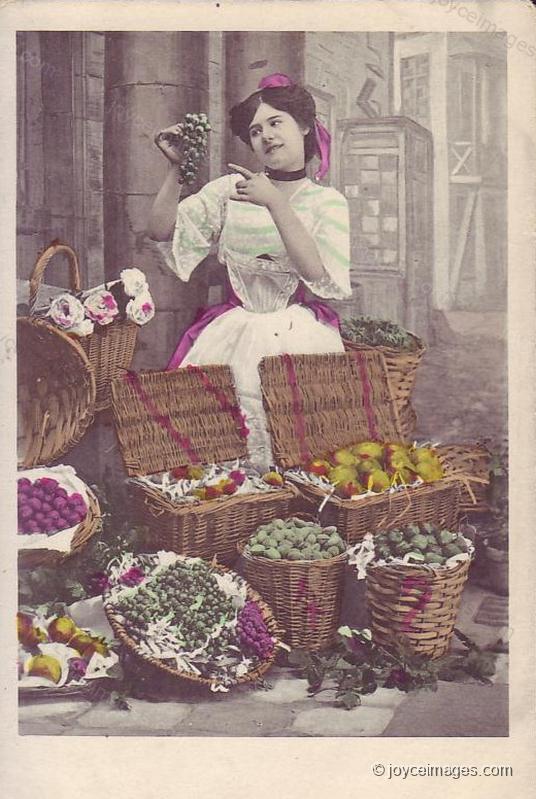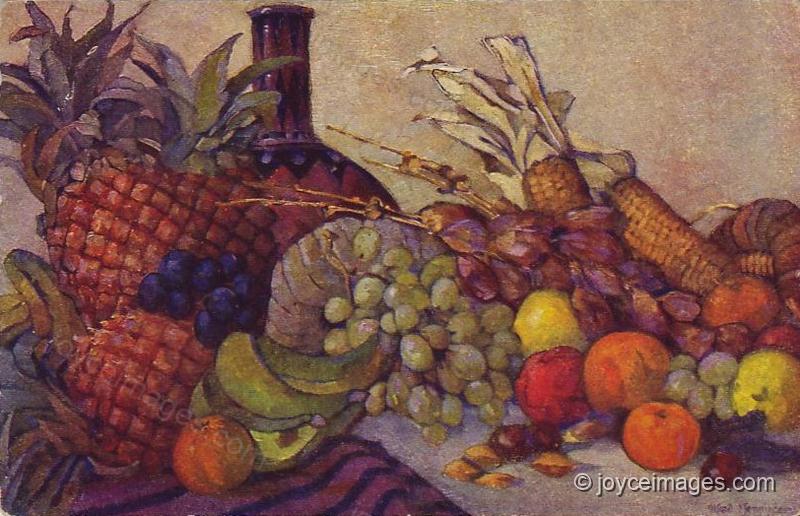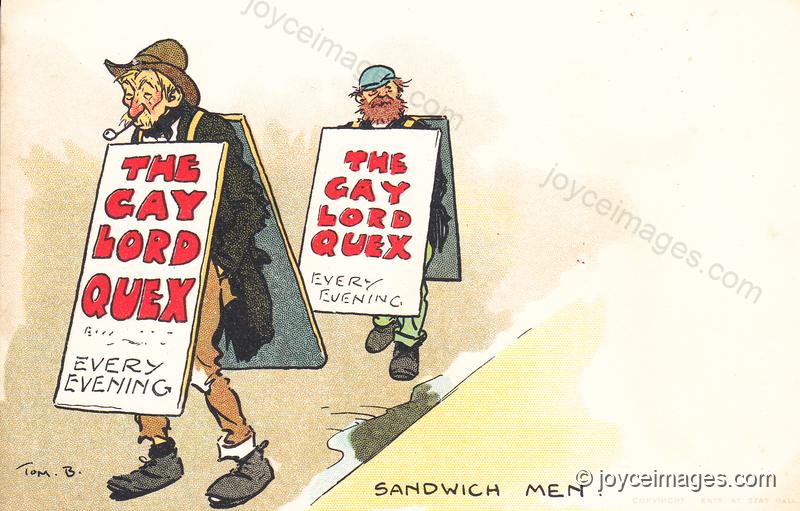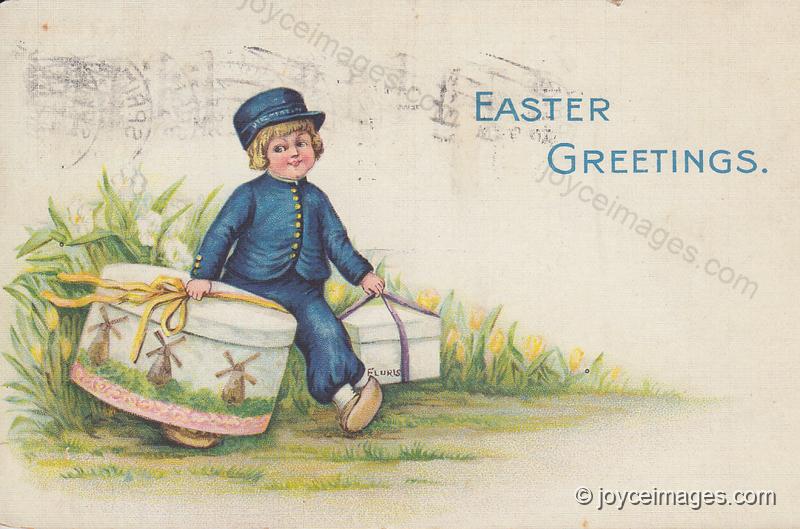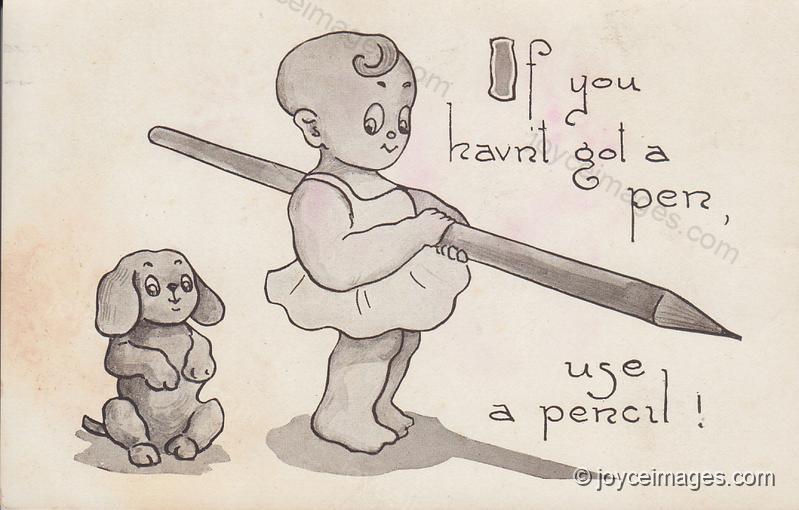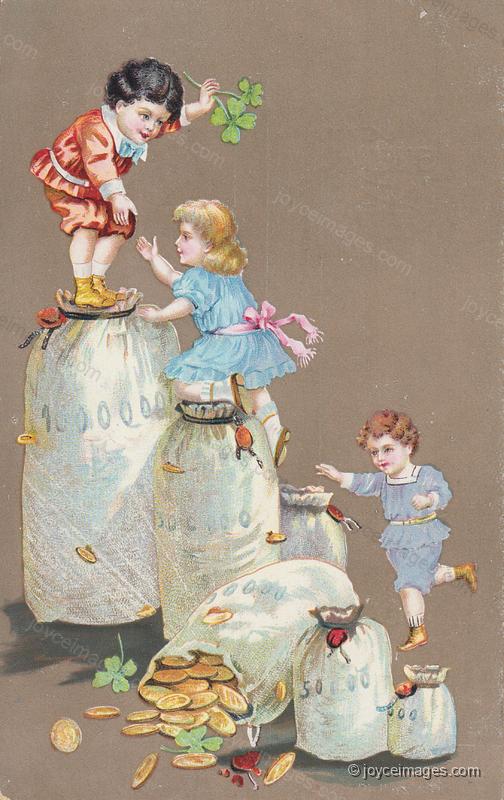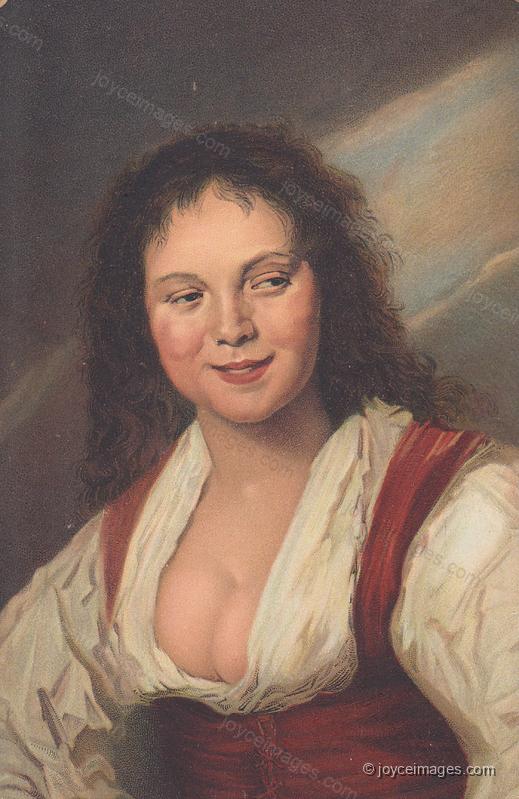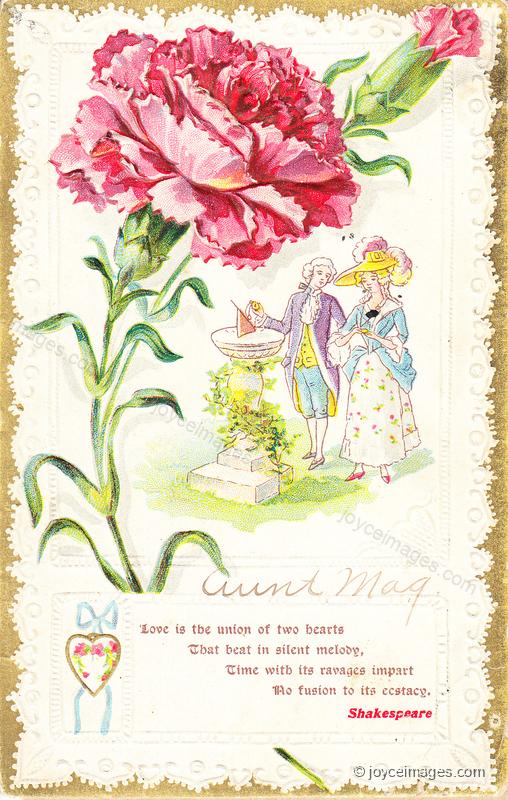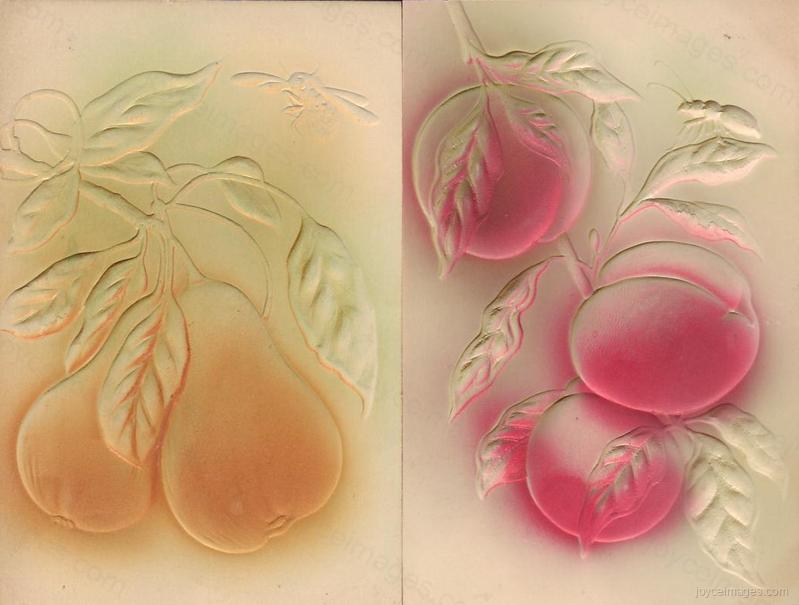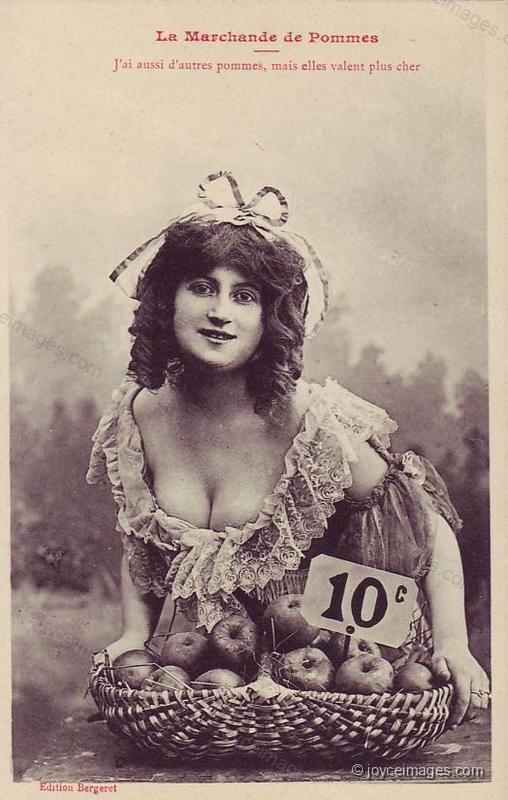"sailing eastward past hulls and anchorchains, between the Customhouse old dock and George's quay." (U10.296)
"The blonde girl in Thornton's bedded the wicker basket with rustling fibre. Blazes Boylan handed her the bottle swathed in pink tissue paper and a small jar.
- Put these in first, will you? he said." (U10.299)
An ad for Thornton in a tourist pamphlet from 1902. We get the store's phone number 217; nowadays Dublin phone numbers have 7 digits.
- Put these in first, will you? he said." (U10.299)
An ad for Thornton in a tourist pamphlet from 1902. We get the store's phone number 217; nowadays Dublin phone numbers have 7 digits.
"- Yes, sir, the blond girl said, and the fruit on top.
- That'll do, game ball, Blazes Boylan said.
She bestowed fat pears neatly, head by tail, and among them ripe shamefaced peaches." (U10.303)
- That'll do, game ball, Blazes Boylan said.
She bestowed fat pears neatly, head by tail, and among them ripe shamefaced peaches." (U10.303)
"Blazes Boylan walked here and there in new tan shoes about the fruitsmelling shop, lifting fruits, young juicy crinkled and plump red tomatoes, sniffing smells." (U10.307)
"H. E. L. Y'S filed before him, tallwhitehatted, past Tangier lane, plodding towards their goal.
He turned suddenly from a chip of strawberries, drew a gold watch from his fob and held it at its chain's length." (U10.310)
He turned suddenly from a chip of strawberries, drew a gold watch from his fob and held it at its chain's length." (U10.310)
"— Can you send them by tram? Now?
A darkbacked figure under Merchants' arch scanned books on the hawker's cart.
— Certainly, sir. Is it in the city?
— O, yes, Blazes Boylan said. Ten minutes." (U10.314)
A darkbacked figure under Merchants' arch scanned books on the hawker's cart.
— Certainly, sir. Is it in the city?
— O, yes, Blazes Boylan said. Ten minutes." (U10.314)
"The blond girl handed him a docket and pencil.
— Will you write the address, sir?
Blazes Boylan at the counter wrote and pushed the docket to her.
— Send it at once, will you? he said. It's for an invalid.
— Yes, sir. I will, sir." (U10.319)
— Will you write the address, sir?
Blazes Boylan at the counter wrote and pushed the docket to her.
— Send it at once, will you? he said. It's for an invalid.
— Yes, sir. I will, sir." (U10.319)
"Blazes Boylan rattled merry money in his trousers' pocket.
— What's the damage? he asked." (U10.324)
— What's the damage? he asked." (U10.324)
"The blond girl's slim fingers reckoned the fruits.
Blazes Boylan looked into the cut of her blouse. A young pullet." (U10.326)
Blazes Boylan looked into the cut of her blouse. A young pullet." (U10.326)
"He took a red carnation from the tall stemglass.
- This for me? he asked gallantly.
The blond girl glanced sideways at him, got up regardless, with his tie a bit crooked, blushing." (U10.327)
- This for me? he asked gallantly.
The blond girl glanced sideways at him, got up regardless, with his tie a bit crooked, blushing." (U10.327)
